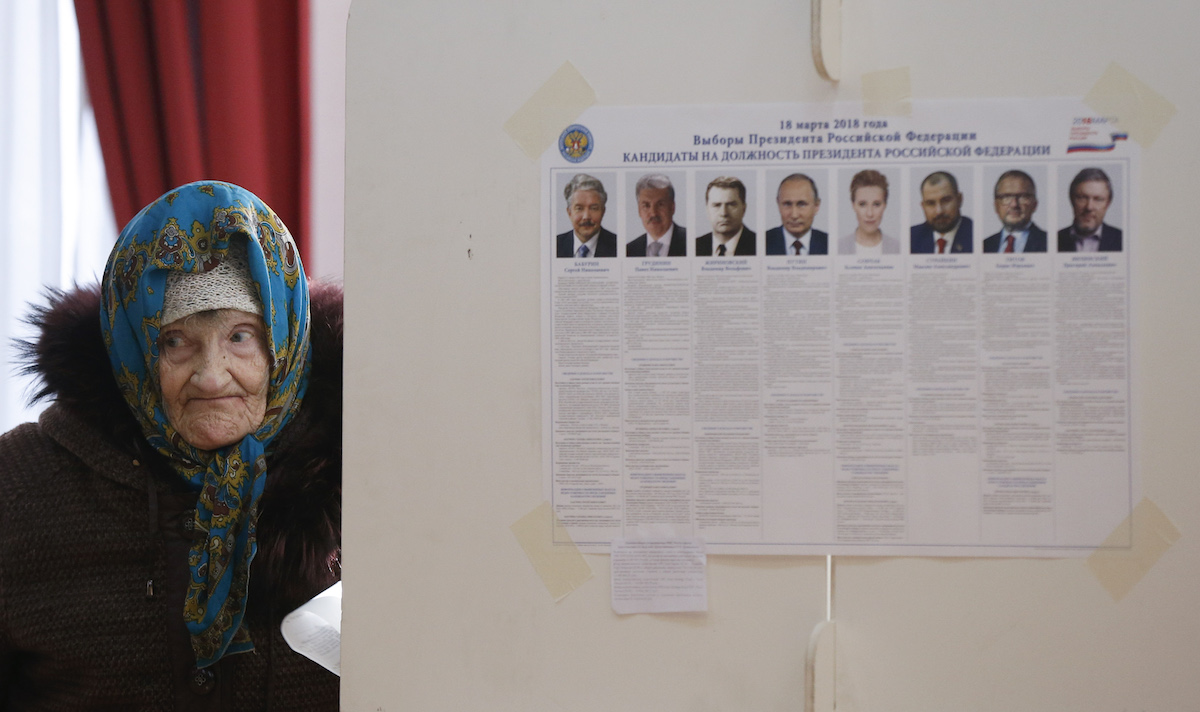Presidential election underway in Russia

The presidential election in Russia took place on 18 March. Based on constitutional amendments introduced in 2008, the President shall be elected for a term of six years.
Many experts have expressed doubts that Vladimir Putin will win the election. If he does win, he will assume the president’s post for the fourth time. Whether it is going to happen or whether there might be some other surprises will only be known by early 19 March.
Voter turnout is surely an important factor for any election, but it’s a particular issue for this presidential election due to to a high-profile ‘voters’ strike’ initiated by Russia’s leading opposition figure Alexei Navalny. The campaign was conducted throughout Russia for a couple of months.
Navalny launched the long-term campaign after he failed to obtain permission to run for president. The Russian Central Election Commission barred him from registering as a presidential candidate referring to an outstanding criminal conviction. Navalny was convicted for embezzling EUR 400 000 during a 2009 timber business deal for which he was acting as a consultant for the KirovLes corporation. The case was finally brought before the European Court of Human Rights, which concluded that Navalny’s right to a fair trial in the case was violated.
However, the aforesaid had no influence on the Russian Central Commission’s decision which still refused to register Navalny as a presidential candidate.
[su_quote]What could have been expected from Russia’s key opposition figure Alexei Navalny if he had become the RF President? JAMnews offers a brief overview of his biography and political vision[/su_quote]
Throughout the year Alexei Navalny conducted a large-scale campaign, travelling throughout the country, holding rallies and publishing the findings of his investigations into the activities of corrupt high-ranking Russian officials on his Youtube channel.
He repeatedly stated that a major goal for the Kremlin in this election was to achieve the maximum voter turnout, since that very factor added legitimacy to the election. Due to this many of Navalny’s supporters registered as election observers to monitor the voter turnout.
Today, on election day, the reporters asked Navalny whether he was going to hold a rally after the polling stations were closed. “We will decide on that tonight because the basic data on violations will be made public after the polling stations close,” he said.
What’s the situation like with the voter turnout now?
According to the ‘Novaya Gazeta’ newspaper, by 3 pm (Moscow time) the lowest voter turnout was reported in St Petersburg and the highest one in Chuvashia.
By 3 pm 38.99% of the expected electorate cast their ballots in St Petersburg;
in Moscow – 40.06%.
The following regions proved to be in the lead in terms of voter turnout:
Chuvashia — 71.76%
Yamalo-Nenets Autonomous District – 69.93%
Chechnya — 68.56%
T
he 2018 Russian presidential election features eight candidates – The highest over the past 18 years. There are two standard candidates on the list – Vladimir Putin and Vladimir Zhirinovsky. The latter has stood for all presidential elections throughout Russia’s history.
Those who go the polls can also cast their ballot for Grigory Yavlinskiy, who hasn’t stood for election since 2000. During his campaign program he pledged to stop the war in Syria and in Ukraine’s East, to initiate an international conference on Crimea’s status, to revise Russia’s budget and increase the government’s expenditures on healthcare and education. However, Yavlinskiy openly claimed that he wouldn’t win this election, saying that his major objective was to gain 10 million votes.
Ksenia Sobchak, who unexpectedly announced her intention to run for president six months ago, presented a similar program. She positioned herself as a ‘candidate against all’. Ksenia Sobchak is the daughter of Anatoly Sobchak, the ex-mayor of St Petersburg. Vladimir Putin served as Sobchak’s top advisor in the 1990s.
Ksenia Sobchak repeatedly criticized Vladimir Putin and the incumbent Russian government. However, many influential experts believe that Sobchak’s presidential campaign was coordinated with the Kremlin and was designed to divert public attention away from Alexei Navalny.
Pavel Grudinin is another candidate in this election and was nominated by the Russian Communist Party (CPRF). He replaced the CPRF leader, Gennady Zyuganov, who previously ran four times for presidency.
Other candidates included in the ballot paper are Suraykin, Titov and Baburin. However, experts are unanimous in the opinion that these candidates will gain an insufficient number of votes.



















